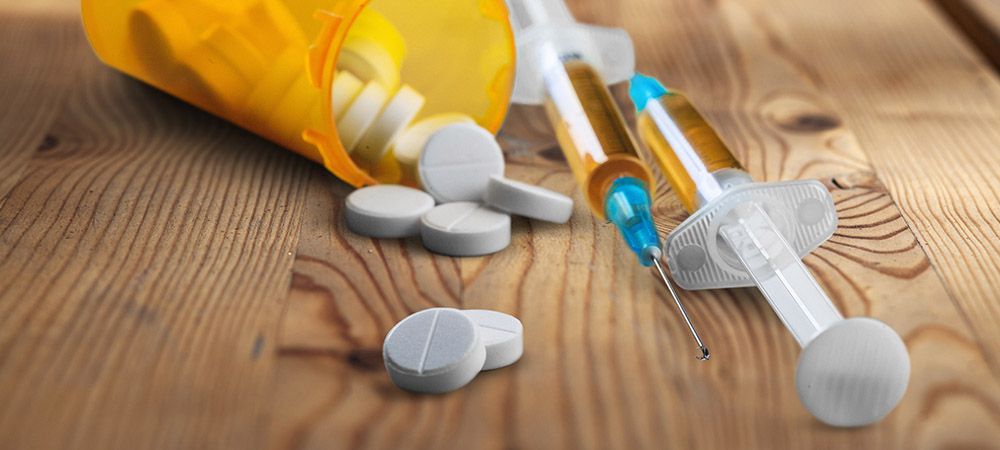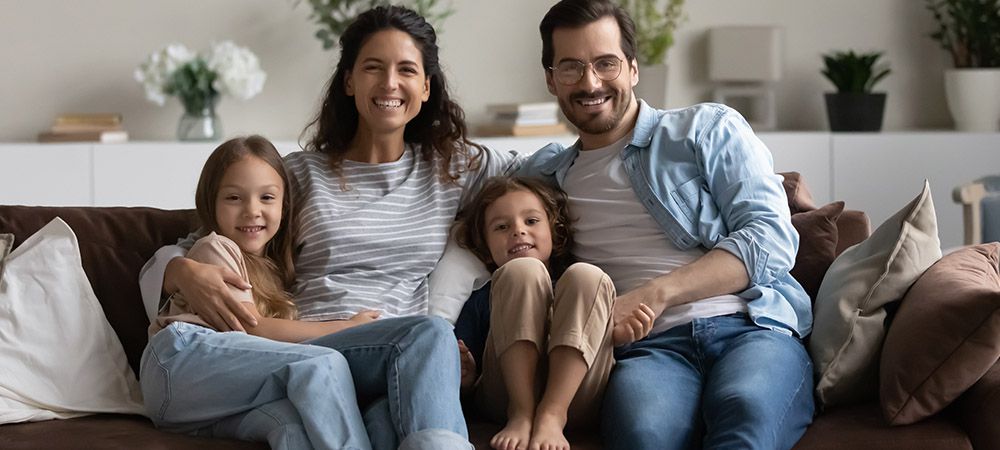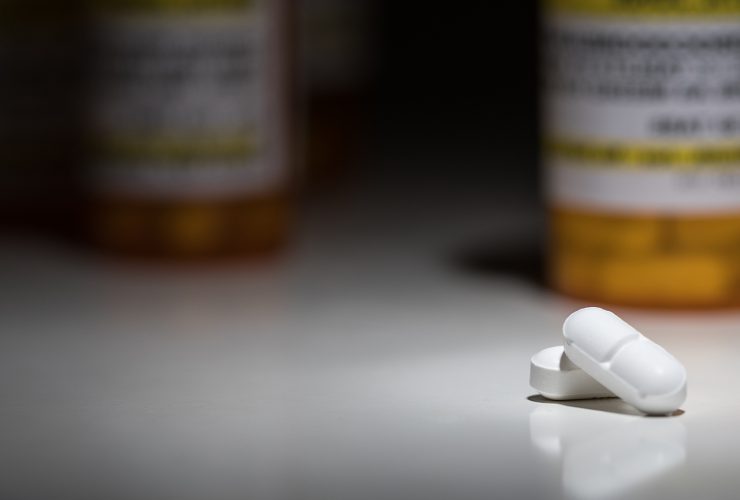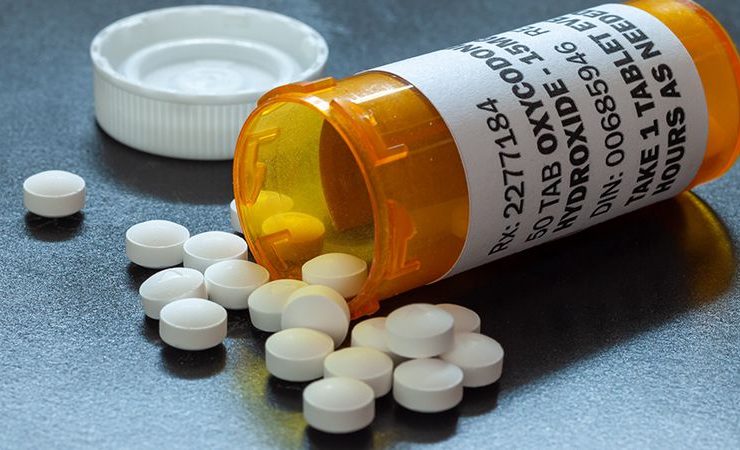How to Prevent Opioid Abuse
Opioids are, no doubt, medically proven to treat certain conditions. However, the need to intentionally prevent opioid abuse has become very important. The urgent need to address opioid abuse is due to the significant rise in related addiction and fatality cases.
Reports show opioids contributed to the death of over 40,000 people in 2019. This toll proves to be six times worse than the numbers in 1999. This situation’s health and life implications on Canadian residents demand urgent attention.
Research in Ontario gives an account of almost 7,000 opioid-overdose deaths between 2016-2020 alone. These numbers show sensitization about its abuse is vital to curb the skyrocketing rise in opioid fatalities.
Here, we’ll explore how to use opioids safely and prevent abuse, starting with a closer look at the signs of opioid abuse. Let’s get into it.
Signs of Opioid Abuse
“Opioid use disorder” is the medical reference for addiction to opioids. Opioid drugs consist of medicines that doctors may prescribe for treating pain. However, they can also be described as illegal due to their adverse effects when abused.
Patients must follow a pharmacist or doctor’s prescription when they use opioids. A deviation from prescription is how opioid abuse and addiction happen.
Furthermore, you need medical aid immediately after you start experiencing struggles to abstain from opioids. The struggle to abstain from opioid abuse can come with certain physical or non-physical dependency symptoms.
The former is the most common of both opioid dependency types. Also, it characterizes withdrawal syndromes like sweating and cravings.
The inability to avoid these drugs can adversely affect different aspects of your life. To prevent opioid abuse or identify it, here are some of its signs:
- The inability to abstain from opioid use
- Drowsiness
- Low libido
- Weight loss
- Opioid-induced financial crisis
- Unhealthy fluctuation of sleeping routine
- Extreme introvert behaviour
Practical Ways to Prevent Opioid Abuse
It can be a difficult decision to stop using opioid drugs completely. However, there are ways to curb the abuse alongside addiction and consequently curtail negative aftermaths.
In subsequent parts of this section, you’ll find nine ways to stay off opioid abuse and addiction.
Abstinence
There are many tips to prevent opioid abuse and addiction, but abstinence crowns all. Opioids can be instantly addictive depending on the body system taking them. Thus, the express answer to how to prevent opioid abuse is total abstinence.
It takes a great deal of willpower and defiance to say no to addictive drugs like opioids. You need to make a personal decision never to indulge in drugs. You can go as far as informing a trusted friend, guardian, or mentor to help monitor the decision.
Consider Possible Risk Factors
You need to be aware of the risks attached to opioids to prevent misuse. Such risks may be environmental, biological, and even physiological. The awareness of risks associated with opioid misuse will likely help you avoid abusing them.
Let’s take a biological example. You may know your family history struggles with a particular ailment. You will likely abstain from opioids if they are triggers for those ailments.
Environmental risks entail keeping opioids in your vicinity or having ready access to them. Numbers from the American Medical Association (AMA) show 3-19% of addicts who develop an addiction to prescription drugs have easy access to them. Further research shows over half of persons who abuse opioids enjoy easy access to the drugs.
Some get opioid medications from family or friends who are likely medically using them. Another set gets it by visiting different pharmacies with the same prescription. Others choose to have multiple physicians to get more opioid prescriptions.
Address Mental Illness
If you or a loved one has a mental illness, you need to seek help immediately. Seeking help is important because mental illness subconsciously induces drug abuse.
Mental illness comes with a shade of pain which opioids may temporarily sate. But in actuality, they can worsen the patient’s situation.
If you’re suffering from a mental health issue, kindly seek medical attention promptly. A mental health professional will equip you with coping mechanisms to help you avoid opioid dependence.
Choose Better Leisure Activities
Getting worn out by work and life activities is almost inevitable at times. At such times, your body demands a break, and your mind knows you deserve it. Selecting healthy, unwinding activities is one of the best ways to prevent opioid abuse.
Sure, it is normal to reward yourself during your downtime. But opioids should never be an option during reward and relaxation time. You’re liable to abuse and develop an addiction when you use opioids without prescription.
Devise other means to blow off steam to prevent opioid abuse under the guise of relaxation. For example, books can help you unwind if you love reading. Other positive activities that can help you relax include playing games, exercising, and picnicking.
Activities like these help relieve stress and keep your thoughts off opioids or similar substances. You inadvertently prevent opioid misuse once your mind isn’t focusing on drugs.
Endeavour to Live a Planned Life
Another way to prevent opioid abuse is to plan your deeds and activities well. When people experience disarray in life, they turn to drugs to find solace.
Get a notepad and document what you look to accomplish. Set daily goals, weekly targets, monthly aims, and yearly visions. Having your desires in clear and accessible documentation will help bring them to reality. This way, you can keep track of your progress and avoid unnecessary moodiness.
Truly, some occurrences are beyond our control, but we can plan to some extent. And when such plans fail, find solace in potential positives.
Bond Well with Family and Keep Good Friends
Maintaining healthy relationships with family and friends are some of the best ways to prevent opioid abuse. Family warmth gives a sense of direction and makes dealing with drug pressure easier. Therefore, individuals with closer family ties are more unlikely to become drug addicts.
If your circle of friends doesn’t abuse drugs, you’ll likely not indulge in it. Also, keeping healthy friendships ensures your inclinations are healthy too. A good friend won’t watch you indulge in drug abuse without cautioning you.
Take Charge of Peer Pressure
Peer pressure is one of the most powerful influences, especially among young people. As a young person, you tend to want to indulge in the same activities as your friends. You don’t want to be a black sheep amongst your peers.
However, in cases like drug usage, the desire to fit in needs a filter. You have to take a stance to be the odd one against drug abuse. Better still, completely excuse a circle that will compulsively make you indulge in drug abuse.
Ready answers against invitations to use opioids will come in handy. Sometimes you may find yourself in situations where there is a temptation to use opioids. Your ready-made answers can help you prevent opioid abuse. Your resolution can even be a source of motivation for some of your indulging friends.
Give Yourself Time To Sleep
Metropolitan lifestyle can be very demanding and draining. This lifestyle includes pressure and stress from work, family, traffic, and expenses. You must find time to rest despite the demands of a busy metropolitan lifestyle.
If you don’t rest, you’re likely to seek another way to keep going. One of such ways could be drugs. But you can’t afford to yield to its temptations.
Sleep is an underrated form of healing. You may be stressed, but most times, what you need is rest. Take time out to sleep well. Sleep helps ease the body and refuel it naturally.
Work Closely with a Physician if You Must Use Opioids
There are instances whereby doctors need to prescribe opioids to patients. If you happen to be in these shoes, use the drugs as the prescription says.
See the following tips in addition to following your doctor’s prescriptions:
- You should never overdose or overlap on the opioid medications you are to use.
- Inform your doctor if you experience any side effects while using opioids.
- You should not take opioids with alcohol.
- Also, speak to your doctor to know what other substances and medication to avoid while taking opioids.
- Never share your prescribed opioids with someone else. And, store them in secure places to avoid unnecessary fiddling.
- Sometimes you may have leftover drugs at the end of your dosage. Ensure to dispose of them properly or find a community drug take-back to give. Work closely with your doctor to help you with a special plan to manage your pain.
- Lastly, discuss extensively with your doctor before you begin opioid doses. You may not have to use opioids after all.
Pain, in any form, is a feeling no one should have to stomach. However, when trying to avoid or reduce pain, you should not immediately turn to opioids.
You can use opioids if your doctor prescribes them. But you need to exercise extreme caution in using and handling it. Opioids may never be classified fully as prescription or contraband drugs. Therefore, it’s up to you to prevent its abuse.
Related Article: How to Get Off Methadone
Is it Possible to Treat Opioid Abuse?
You may have crossed the stage of preventing opioid abuse. You’re likely at an addiction stage. However, you should not resign to that condition. You can treat opioid addiction.
Opioid addiction is a severe medical case that can cause gradual physical and mental deterioration. However, early detection makes opioid addiction treatment easier and prevents permanent damage.
It requires resilience stronger than willpower to ditch any form of drug abuse. But recovery is not impossible. You can end the recovery-relapse cycle. It may be a long process, but you can succeed with appropriate medications and counselling.
Key Things to Know About Opioid Addiction
- Opioid addiction alters specific parts of the brain.
- The changes caused by these alterations further tamper with mood designs and reward definition.
- Opioid addiction also hampers the full functionality of your body system.
- If you abruptly abstain from taking opioid substances, you’re susceptible to withdrawal symptoms like the following:
- Craving for drugs
- Diarrhea
- Large pupils
- Yawning
- Belly pain
- Chills and goosebumps
- Nausea and vomiting
- Body aches, agitation
- Severe bad moods
Therapies for Opioid Addiction Treatment
There are different therapies to aid addiction recovery. For opioid addiction detox, there are two major therapy forms, including counselling and behavioural therapies.
Both therapies have long and comprehensive periods for administration. Also, these therapies come with aligning medications known as medication-assisted treatment (MAT).
Counselling Therapy
A medical professional can best administer this form of therapy. Moreover, it significantly aids in your addiction detox process.
Counselling sessions help highlight your drug usage triggers. Subsequently, these sessions help address your triggers. Triggers such as your self-esteem, stress, and relationships undergo comprehensive evaluation and work. Counselling sessions go as deep as examining your circle to identify drug users who may be influencing your abuse.
Your counselling therapy sessions may also involve contingency management and motivational interviews. The first entails the use of incentives. This reward system helps you stick to your treatment medications and schedules.
The second involves moral stimulation. Motivational interviews help you see reasons to maintain your healthy recovery process.
Behavioural Therapy
Behavioural therapy highlights the reasons you may be using drugs. Afterward, it lets you recognize the possibility of containing your problems without drug use.
Knowing you can solve problems without drug influence helps you avoid opioid dependence.
Addiction specialists often use behavioural, and counselling therapies in combination with other therapies like:
- Family therapy: Entails bringing in familiar folk who care about your well-being to aid your recovery.
- 12-step groups: This characterizes having set priorities like attending meetings.
- Residential treatment: It involves residing with patients who are suffering from the same ailment as you. You and other patients can, through cohabitation, help each other in the recovery process.
- Support group: This involves an introduction to people who have been in your shoes and have healed. Their recovery experience can be vital in inspiring yours.
Related Article: 10 Tips to Beat Methadone Addiction
Final Take
Good leisure habits and abstinence are two of the ways to prevent opioid abuse. These tips are proof that you or your loved ones can prevent opioid abuse.
But, we also understand you may be at the point where you can no longer prevent opioid abuse. That is, you’re likely noticing the addiction signs discussed earlier in the article.
Opioid addiction treatment is the best solution if you’re past the stage of preventing abuse. And here at Inspire Change Wellness Centre, we offer world-class opioid addiction treatment services.
Reach out to us today to start your recovery journey.




